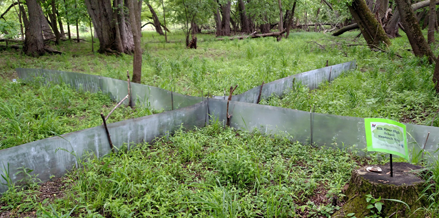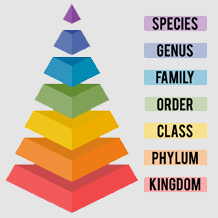
Herpetology Summer School (HSS 2024)
Course registration for Summer 2024 ends on Tuesday, April 30, 2024
We are organizing the Herpetology Summer School (HSS) which will be conducted across two islands of Indonesia, Java and Bali with the participation of 35 students. The students will be drawn from across Indonesia’s diverse regions and cultures and will also include international participants from the Asian region. We believe the HSS can major and timely contribution to the identified training gap in this key sector. With the collaboration and support of several local and international partner organizations, funding agencies, conservation managers, and education institutes, we can provision an outstanding training opportunity that can deliver sustained impacts for the trained individuals, and for herpetofauna diversity and society across Indonesia.
Course directors: Dr. A. A. Thasun, Prof. Justin Travis & Dr. Sandy Nurvianto
Course coordinators: Dr. Poppy Mynard, Dr. Amir Hamidy & Mr. Awal Riyanto
Target audience and prerequisites. Early career researchers / academics, students, NGO practitioners, government officials, with a minimum qualification of a bachelor’s degree in biology or similar (age limit 30 years old. The participants must be physically fit for long distance hiking/trekking.
Location, dates, duration. The HSS will be held biennial starts from 7 June 2024 (course duration 8 weeks: 10 credits) in Indonesia (Java and Bali Islands).
Course fee. USD 2,000 / IDR 30.000.000* a limited number of partial scholarships are available
Course Content.

Ecological Survey Techniques. A comprehensive assessment of environment is essential for understanding its biodiversity. A thorough evaluation of environmental elements (e.g., habitat, taxa, and environmental conditions) can be done with good survey techniques.

Molecular Systematics uses information in molecular data to reconstruct phylogenetic relationships. In Herpetology, molecular systematics is essential because it provides a reference system for species and can help identify and classify species.

Morphology, Morphometry, and Meristic. Morphology is the appearance or shape of an organism. Morphometry is generally done to study an organism’s physique, while meristic is the counting of the number of physical characteristics of an organism.

Data Analysis and Statistics for Ecology. Ecology is a study to determine the relationship between living things and the environment. Therefore, understanding statistics is fundamental in ecology to understand the relationship between theory and phenomena that occur in ecosystems.

Species Distribution Modelling and niche Modeling are essentially the same. This is because “species niche model,” “ecological niche model (ENM),” or “niche-theory model” are terms often used to describe Species Distribution Modeling (SDM).

Phylogenetic Analysis is the study of evolutionary relationships in organisms or genes. In Herpetology, phylogenetic analysis is essential to help researchers understand the relationships among species both extant and extinct, and also estimate their origin in the geological time scale.

Zoological Nomenclature is the process of naming species departed from the confusion in zoological literature in the 19th century. An international species naming system was agreed upon, which is currently under the International Code of Zoological Nomenclature or ICZN.

Scientific Paper Writing is a systematic and structured process for disseminating research findings clearly and concisely. Effective scientific writing requires a deep understanding of the subject matter and the ability to communicate complex ideas to a broader audience.

Scientific Presentation is an essential aspect for a researcher which allows to communicate findings, methods, and insights to a broader audience. An excellent scientific presentation combines effective verbal communication and attractive presentation media.
Route map of Summer School 2024


Workshop: The art of naming reptile species
Workshop registration for Winter 2024 ends on Saturday, November 30, 2024
We are organizing the residential workshop “The art of naming reptile species” which will be conducted with the participation of 35 students. The students will be drawn from across Indonesia’s diverse regions and cultures and will also include international participants from the Asian region. With the collaboration and support of several local partner organizations, funding agencies, conservation managers, and education institutes, we can provision an outstanding training opportunity that can deliver sustained impacts for the trained individuals, and for herpetofauna diversity across Indonesia.
Course directors: Dr. A. A. Thasun & Dr. Amir Hamidy & Dr. Sandy Nurvianto
Course coordinators: Mr. Awal Riyanto & Ms. Maya D. Prasetyaningrum
Target audience and prerequisites. Undergraduates, early career researchers / academics, students, NGO practitioners, government officials (age limit 30 years old).
Location, dates, duration. The workshop will be held biennial starts from 25 December 2024 (course duration 1 week: 1.5 credits) in Indonesia (based in Depok, UI)
Course fee. USD 300 / IDR 4.500.000* a limited number of partial scholarships are available
Morphometric analyses. Aim to provide a “hands-on” approach to give a basic knowledge of the aims and methods of Morphology, Morphometrics, and Meristic, and how they can be used in taxonomy; quantify the variation in morphology, especially those pertaining to evolutionary and biological processes in animal population; provide an introduction to multivariate statistics; and analyze the results using the R statistical programming language.


Phylogenetic analyses. Aim to provide the fundamental concepts in molecular systematics, analysis techniques, and its application in systematic perspective; describe the process of constructing molecular phylogenetic trees from sequence data, choosing an appropriate set of tools and models; have an overview of the software available; interpret the phylogenetic inference results with regards to evolutionary information, robustness and potential inaccuracies.
Apply Nomenclature codes. Aim to overview of the different nomenclature codes on the International Code of Zoological Nomenclature (ICZN); understand the existing nomenclature codes; difference between nomenclature and taxonomy; scientific name and authorship; implications of names and their practical use in biology including examples of issues with misidentifications, misspellings, changed combinations, synonymy, ethics, etc.


Scientific writing. Aim to understand the nature of science, collate and analyze data from a variety of sources, the development of science and research ethics in general; communicate the results using appropriate scientific terminology and formatting; develop understanding of the process of scientific peer review, the role of editors and reviewers, how to effectively respond to reviews, how to select the best journal for your work, etc.
Publishing a research article. Based on the study results during workshop draft a manuscript to publish in a reputed International Journal.

